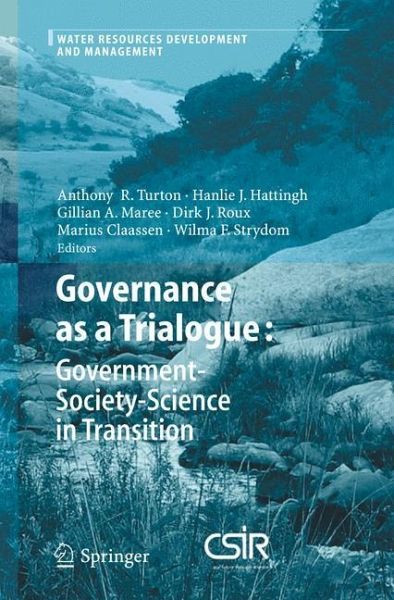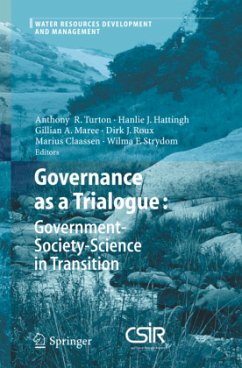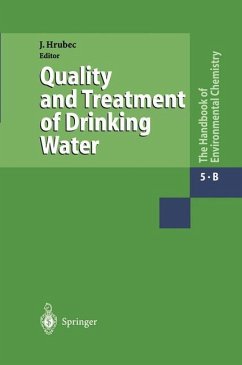
Governance as a Trialogue: Government-Society-Science in Transition
Versandkostenfrei!
Versandfertig in 6-10 Tagen
113,99 €
inkl. MwSt.

PAYBACK Punkte
57 °P sammeln!
The last two decades have been marked by a dramatic increase in global attention to the concept of governance, especially in relation to the eff- tive and sustainable management of natural resources. During this period, issues of water governance have received particular attention, for example in relation to the provision of reliable water supplies as a catalyst for p- erty eradication. Within the context of the Millennium Development Goals, and against a backdrop of an increasing frequency of water crises (ranging from widespread flooding to severe water scarcity), it is essential that each c...
The last two decades have been marked by a dramatic increase in global attention to the concept of governance, especially in relation to the eff- tive and sustainable management of natural resources. During this period, issues of water governance have received particular attention, for example in relation to the provision of reliable water supplies as a catalyst for p- erty eradication. Within the context of the Millennium Development Goals, and against a backdrop of an increasing frequency of water crises (ranging from widespread flooding to severe water scarcity), it is essential that each country (and particularly those countries that face development challenges) should be in a position to ensure that access to water is ava- able to those who need it most. This issue has been highlighted by the Global Water Partnership, which stated that the water crisis facing the world is in reality a crisis of governance. The South African political environment has changed dramatically in recent years, and the central concepts of social equity and the right to a healthy environment are now entrenched in the country's Constitution. These concepts are supported by several new laws, in particular the - tional Environmental Management Act and the National Water Act, which, in turn, are based on the principles of sustainable development. However, despite the highly desirable attributes of these landmark pieces of legis- tion, South African authorities are still struggling to implement the - quirements of these Acts almost a decade after their promulgation.














